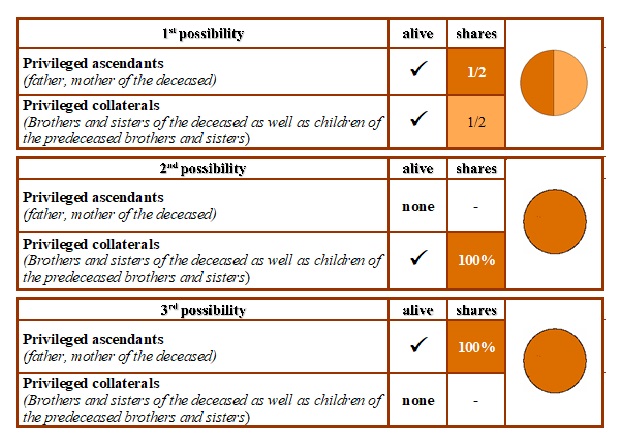The Civil Code of Quebec contains provisions governing the distribution of property of a person deceased without a Will by favoring at first the closest relatives of the deceased and then by gradually including more distant relatives of the deceased. All of these provisions are known under the name of legal devolution.
Thus, in the case of a person who dies without a spouse, married or in a civil union, and without descendant, the Civil Code of Quebec favors the privileged ascendants and privileged collaterals of the deceased. Legal devolution of the Civil Code of Quebec at first provides for the hypothesis of the presence of member(s) in each of the two groups, as much among the privileged ascendants as among the privileged collaterals. In this case, each of the groups will receive ½ of the deceased's patrimony. Distribution within each of the groups will be made according to the number of members in each of these groups.
If, however, there was absence of members in one of the groups, it is the other group that will receive the entire patrimony of the deceased. Thus, if the father and mother of the deceased are predeceased when occurs the death of the latter, the privileged collaterals will become the only heirs of the deceased.
These tables allow you to determine the heirs in the case of a death without a Will
